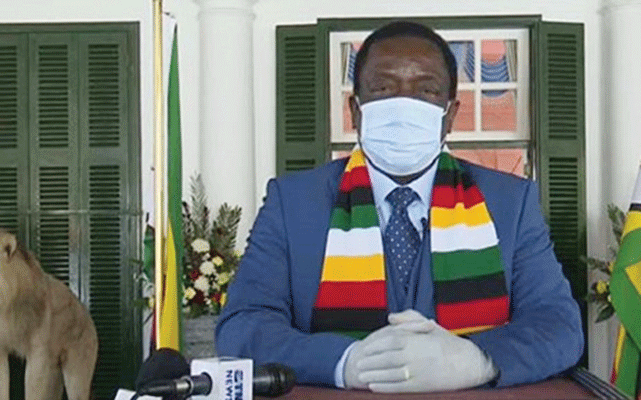
ZIMBABWE’S record on the human rights front has never been great under the Zanu PF regime, be it under the late former President Robert Mugabe or under its current iteration led by President Emmerson Mnangagwa.
When he took over from is long-time mentor, albeit via a coup in November 2017, Mnangagwa insisted that he would be a transformative leader and avoid the mistakes that made Zimbabwe a pariah State on the international arena.
At times he tries hard to live up to that pledge, but from time to time, the Mugabeism pops out to reveal the rottenness under the silky smile. So, it was not surprising to hear Mnangagwa, after insisting all along that vaccination against COVID-19 would be voluntary, change tack with the threat that all those who do not get vaccinated will be discriminated against.
Here is what he said in vernacular at an event in Nyamandlovu last Thursday: Haumanikidzwi kubaiwa. Ichasvinga nguva yekuti kana usina kubaiwa hauwani basa, kana usina kubaiwa haukwiri Zupco. Saka wotowona kuti woita sei.” (Vaccination is not mandatory. But in future, you will not get a job, or get onto a Zupco bus if you have not been vaccinated. So you will have to decide.)
That is not an oblique statement, but a straightforward warning that whether one wants or not, has reservations or whatever about the Chinese-made Sinopharm vaccine, they have to get the jab or else.
We note that Mnangagwa urged people to take the Sinopharm vaccine, which would have been sufficient without the threats. For those familiar with him, his voice is ominous enough without the added intimidation.
But, would it not work better for government to give more information about the vaccine for the public to make up their minds? To let the public assess for themselves that they have nothing to fear about the vaccine which is a key element in the defence against the coronavirus as the country moves to return to normalcy, or as normal as possible because indications are that we will have to learn to live with the virus?
It is critical to get public buy-in because the fight against COVID-19 is in its infancy and we need everyone on board, not pushing conspiracy theories.
- Chamisa under fire over US$120K donation
- Mavhunga puts DeMbare into Chibuku quarterfinals
- Pension funds bet on Cabora Bassa oilfields
- Councils defy govt fire tender directive
Keep Reading
Yes, globally, even in the United States, the United Kingdom and the European Union, there are fierce discussions about a “vaccination passport,” a certificate proving that the holder has been inoculated.
Such a certificate would be used for travelling abroad or access to public spaces such as restaurants or shops.
Maybe that is what Mnangagwa had in mind?
But for a country that has always claimed that it is guided by World Health Organisation (WHO) guidelines, Zimbabwe should note WHO’s warning in a statement in January that governments should “not introduce requirements of proof of vaccination or immunity for international travel as a condition of entry” because “there are still critical unknowns regarding the efficacy of vaccination in reducing transmission and limited availability of vaccines”.











